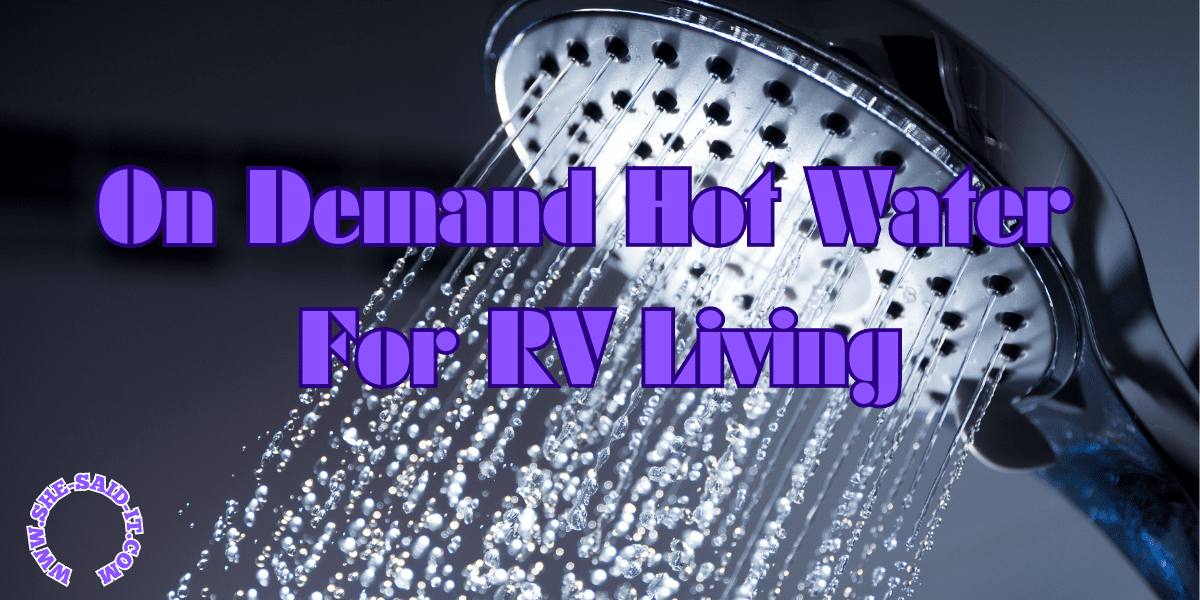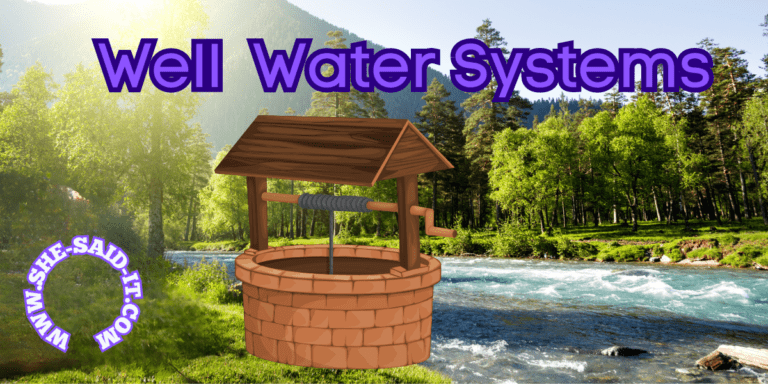The Ultimate Guide to On Demand Hot Water for RV Use
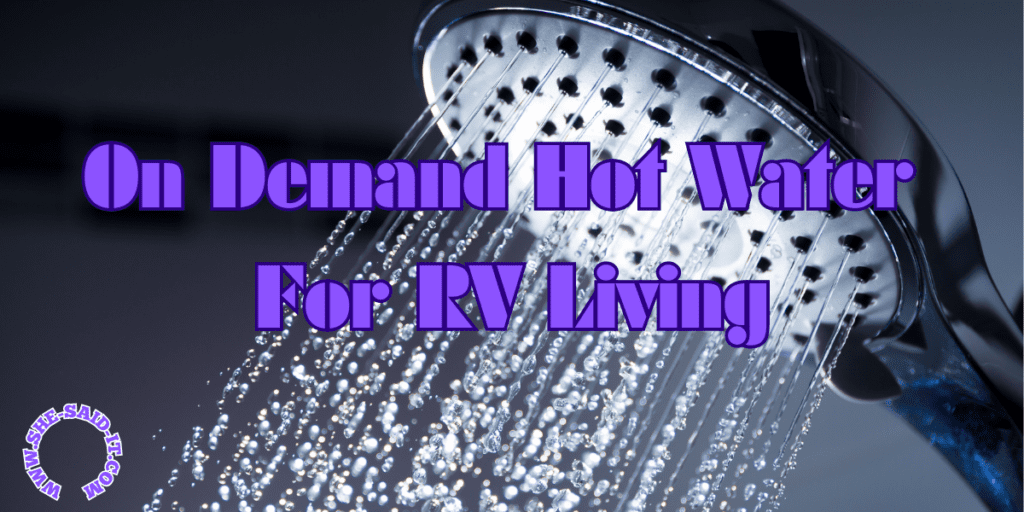
Never Run Out of Hot Water Again: The Ultimate Guide to On Demand Hot Water for Your RV
Anyone who has spent any time in an RV knows that one of the complaints heard the most often is the lack of hot water. I know some of the new rigs come with on-demand tankless hot water heater and I’m envious. I have been using the ‘navy’ shower method since 2009. A ‘navy’ shower is turning off the shower when you are not using it. I have been turning the shower off while lathering my hair or body for so long that I do it when I shower at the gym. Yes, saving water is something everyone should do, but being able to have an actual full-length hot shower is not something I’ve ever really been able to do in my current RV. I have been shopping and looking at RV tankless on demand system for my RV for a few years now.
What is on-demand hot water?
On-demand, also known as a tankless hot water heater, is a type of heating system that heats water as it flows through the unit. Unlike traditional units, which store a large tank that gradually depletes as you use it, tankless heaters only work when you need it. This makes them more energy-efficient and space-saving than traditional water heaters.
On-demand tankless water heaters work by using a heat exchanger to transfer heat from a heat source (such as a gas burner or electric heating element) to the water flowing through the unit. When you turn on a hot water faucet in your RV, the water flows through the heat exchanger and is heated to the desired temperature before it reaches the faucet.
One of the primary benefits of a tankless water heater is that they provide a continuous supply of hot water. With a traditional unit, you may run out of hot water if you use more than the tank’s capacity. With a tankless water heater/on-demand system, you can take as many showers or wash as many dishes as you need without worrying about running out of hot water as long as you have unlimited access to H2o.
Additionally, on demand hot water for rv use is more energy-efficient than traditional water heaters because they only use energy when you need hot water. Traditional water heaters are constantly using energy to keep a large tank of water hot, even when you’re not using any hot water.
Overall, on-demand hot water systems are a great option for RV owners who want an energy-efficient and space-saving heating solution that provides a continuous supply of hot water.
Benefits of on-demand hot water for RVs
- Space-saving design: On demand hot water for rv applications are much smaller than traditional units, making them ideal for RVs where space is at a premium. They can be installed in tight spaces, such as under a sink or in a cabinet, without taking up too much room.
- Energy efficiency: Tankless water heating systems are more energy-efficient than traditional water heaters because they only use energy when you need hot water. Traditional units are constantly using energy to keep a large tank hot, even when you’re not using any of it. This means that on-demand hot water systems can save you money on your energy bills, which is especially important for RV owners who are often travelling and using their RVs off-grid.
- Continuous hot water supply: With an on-demand hot water system, you’ll never run out of hot water. Traditional water heaters can only provide a limited amount of hot water before the tank needs to refill and reheat. This can be a problem if you’re taking a long shower or need to do a lot of dishes. With an on-demand system, you can use as much hot water as you need without worrying about running out.
- Low maintenance: On-demand hot water systems require less maintenance than traditional water heaters because they don’t have a tank that can rust or leak. They also don’t require flushing or draining as traditional water heaters do. This means that you’ll spend less time and money maintaining your hot water system and more time enjoying your RV travels.
Types of on-demand hot water systems for RVs
- Propane-fueled systems: Propane-fueled on-demand hot water systems are a popular choice for RV owners because propane is readily available and can be easily stored in the RV’s propane tank. Propane systems are also very efficient and can provide hot water quickly, even in colder temperatures.
- Electric systems: Electric on-demand hot water systems are another popular choice for RV owners who want a more eco-friendly option. These systems use electricity to heat the water and can be powered by the RV’s battery or by plugging into an electrical outlet. Electric systems are generally less expensive than propane systems but may not provide as much hot water in colder temperatures.
- Hybrid systems: Hybrid on-demand hot water systems are a combination of propane and electric systems. These systems use electricity to preheat the water and then propane to boost the temperature as needed. Hybrid systems are a great option for RV owners who want the efficiency of propane with the eco-friendliness of electric.
- Point-of-use systems: Point-of-use on demand hot water for rv isn’t seen as commonly but they are designed to be installed directly under a sink or showerhead. These systems provide hot water instantly to a single fixture, without the need for a large water heater. Point-of-use systems are a great option for tankless water heater for van life builds due to the very specific needs and space-saving implications
Factors to consider when choosing an on-demand hot water system for your RV
- Choosing an on-demand tankless water heating system for your RV can be overwhelming, but there are a few factors to consider that can help you make the best decision for your needs. Here are some factors to consider when choosing an on-demand tankless water heater system for your RV:
- Fuel source: The type of fuel source you choose will depend on your personal preferences and the availability of fuel sources while you’re on the road. Propane is a popular fuel source for RV hot water systems because it is widely available, easy to store, and can be used off-grid. Electric systems are also popular, but may require access to an electrical outlet or your RV’s battery. Natural gas is another option but isn’t that common in many RV parks.
- Capacity: The size of the on-demand tankless water heater you need will depend on the number of people traveling in your RV and your hot water usage needs. A larger system will be needed for larger families or for those who use a lot of hot water, while a smaller system will suffice for a single person or couple.
- Flow rate: The flow rate is the amount of water that the system can heat and deliver per minute. A higher flow rate is needed for larger RVs or for multiple hot water fixtures to be used at the same time, such as taking a shower while someone else is washing dishes.
- Installation: Consider the ease of installation and if you have the necessary tools and expertise to install the system yourself. Some on-demand tankless water heater systems may require professional installation, which can increase the cost.
- Budget: On demand hot water for rv systems can range in price from a few hundred dollars to over a thousand dollars. Consider your budget and the features you need to determine which system is the best fit for you.
- Maintenance: Some on-demand hot water systems require more maintenance than others. Consider the maintenance requirements of each system and if you have the time and resources to maintain it properly.
Some Drawbacks to on demand hot water systems for RV Use
While tankless heaters are a great choice for many RV owners, there are a few drawbacks to consider. Here are some drawbacks of having an on-demand H2o heater in your RV:
- Higher upfront cost: Tankless hot water heaters are generally more expensive upfront than traditional hot water heaters. This can be a significant investment for RV owners who are on a tight budget.
- Requires electricity or propane: On-demand hot water heaters require either electricity or propane to function. This means that if you are boondocking or don’t have access to electricity or propane, you won’t be able to use the hot water heater.
- Limited water supply: On-demand hot water heaters require a consistent water supply to function properly. This can be a problem if you have a limited water supply and need to conserve water while boondocking or dry camping.
- Longer wait time for hot water: Tankless water heaters require a short amount of time to heat up the water, which means that you may have to wait a bit longer for hot water than with a traditional hot water heater.
- Potential maintenance issues: Tankless water heaters may require more maintenance than old school units. This can be a problem for RV owners who don’t have the time or resources to perform regular maintenance on their hot water heater.
- More complicated installation: Installing an on-demand hot water heater may be more complicated than installing a traditional hot water heater. This may require professional installation, which can increase the cost.
When it comes to boondocking or dry camping, tankless water heaters can be challenging to use because they require a consistent supply and either electricity or propane to function. Additionally, the limited water supply can be a problem, as the hot water heater will use more water than a traditional unit. It’s important to consider these factors when deciding if an on-demand system is right for your RV and your camping style.
Installation and Maintenance of Tankless Hot Water Heater systems for Campers
Installation: Tankless water heating systems for RVs can be installed by DIY enthusiasts or professionals. However, professional installation is recommended for those who are not comfortable working with gas or electrical systems. Professional installation ensures that the system is installed correctly and safely.
If you choose to install the system yourself, make sure to follow the manufacturer’s instructions carefully and use the appropriate tools and materials. You will need to install the system near a propane supply line or electrical outlet, depending on the type of system you have. You may also need to make modifications to your RV’s plumbing system to accommodate the new hot water system.
Maintenance: Regular maintenance is important to keep your on-demand tankless heating system running smoothly. Common maintenance tasks include:
- Flushing the system: Sediment and other debris can build up in the system over time, causing it to work less efficiently. Flushing the system periodically can help remove any build-up and keep the system running smoothly.
- Checking for leaks: Check the system regularly for leaks, and address any leaks immediately to prevent damage to your RV.
- Cleaning the burner: The burner can become clogged with dirt and debris, affecting the performance of the system. Regular cleaning can prevent this from happening.
- Checking the electrical connections: If you have an electric system, make sure to check the electrical connections regularly to ensure they are tight and secure.
Troubleshooting: If you experience problems with your tankless water heater, here are some troubleshooting tips:
- No hot water: Check the propane supply or electrical connection, depending on the type of system you have. Also, check the flow rate and make sure the system is turned on.
- Inconsistent temperature: If the temperature is fluctuating, check the flow rate and make sure the system is adjusted to the right temperature.
- Low water pressure: Check for any leaks or clogs in the system. You may need to clean the filter or adjust the pressure.
Popular On Demand Hot Water for RV Campers
There are several popular on-demand tankless systems for RVs on the market. We are specifically looking at the type that will drop into the spot where your original traditional tank heater was. Here are some of the most popular ones, along with reviews, pros and cons, and cost comparisons:
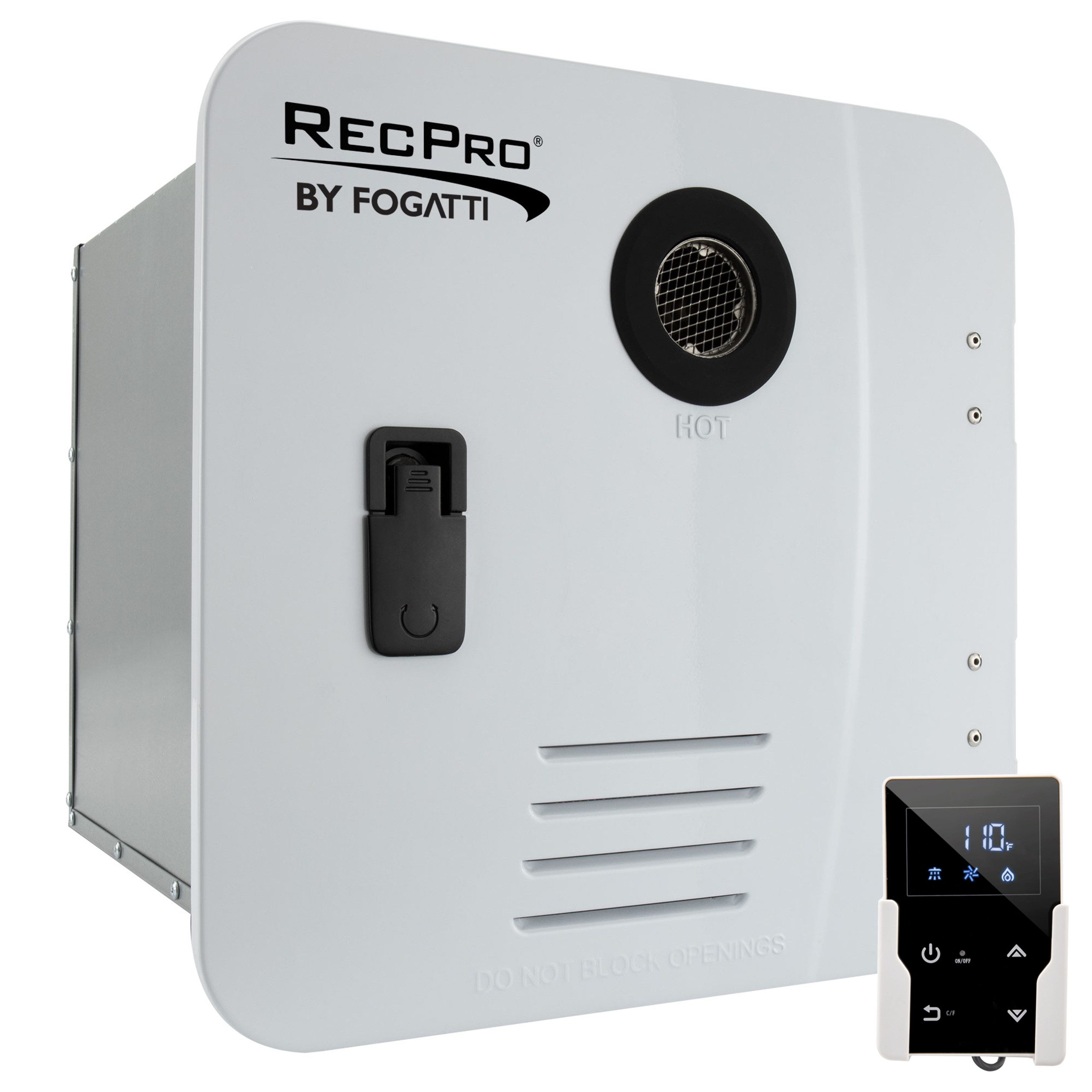
- Provides instant hot water with no wait
- Features a forced exhaust structure and dust net to keep the air clean as it moves through the tankless water heater
- Utilizes low water pressure startup
- Heated with propane
- “Flame Out Protection” automatically turns off the unit if the flame gets snuffed out
- “Water & Gas Linkage Control” turns off the heat if you run out of water, so you don’t use up all your propane or damage the heater
- “Frost Protection” automatically heats the water if the temperature is 43°F or less
- Temperature range from 95°F – 123°F
- Applicable water pressure from 14.5 PSI – 116 PSI
- 69% of over 300 gave 5 stars

- Furrion’s 2.4 GPM / 144GPH RV tankless water heater slots into your RV or camper and provides unlimited hot water on demand.
- Easy retrofit installations means you can install it on any RV or camper model.
- Get your desired temperature and steady flow, just like home, with intelligent control system.
- 75% of almost 300 Reviews gave 5 stars
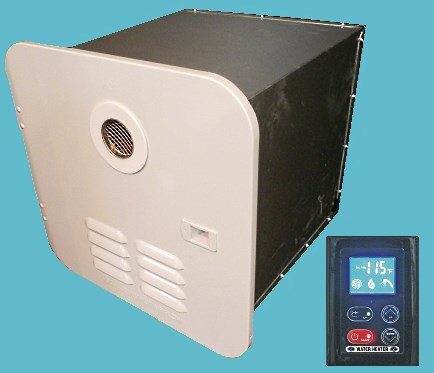
- Works based on rate of water flow and temperature dial
- 42000 BTU
- 22lbs
- Eliminates weight of water in a storage tank
- Regulates the burner to maintain the set hot water temperature
- Built-in freeze protection – no bypass needed to winterize
- No tank means no anode rod needed to protect against corrosion
- 72% of over 1100 reviews gave 5 stars
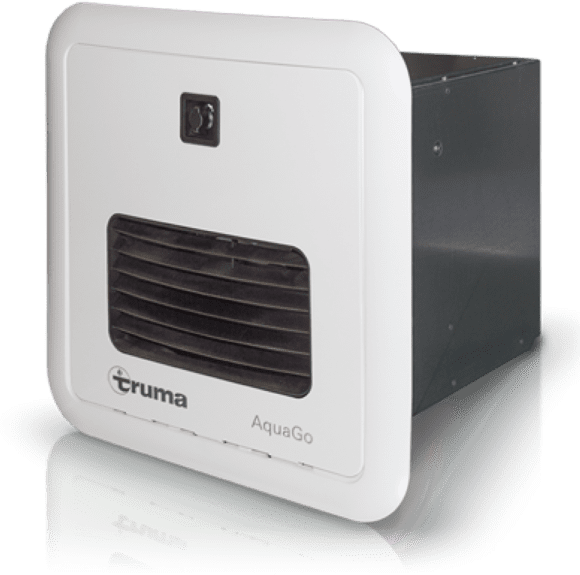
- Truma Hybrid Technology keeps temperature constant – no scalding
- Continuous supply of consistent hot water
- Simple open “Easy Drain Lever” – Winterization done
- Exclusive decalcification technology – extends life and maintains performance
- Ability to install the optional antifreeze kit
- CON: apparently can only be installed by certified Truma technician
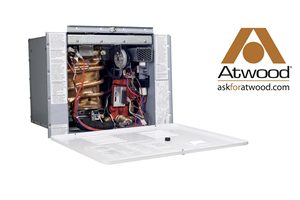
- The Atwood 94191 is a popular choice for RV owners due to its energy efficiency and quiet operation. It is propane-powered and provides a continuous supply of hot water.
- 50,000 BTU
- This unit did not get the best reviews and is not readily available. Some users have reported issues with inconsistent water temperatures and difficulty adjusting the temperature.

- Designed specifically for RVs, Trailers, Tiny Houses, Cabins, and more
- Conveniently installs and vents through the sidewall
- Takes up half the space and weighs one third as much as a ten-gallon tank
- No pilot light and very high efficiency
- Straightforward installation
- Reliable, proven VariFlame technology control system
- Standard Cold Weather Protection
- It is known for its energy efficiency and quiet operation.
Portable Outdoor On Demand
Best Electric
If I were doing a tiny house or van build I would go with something like the following options. They are compact and really easy to install provided you have access to electricity or an inverter and good solar. They are also almost half the price or more of the propane style tankless models I looked at.
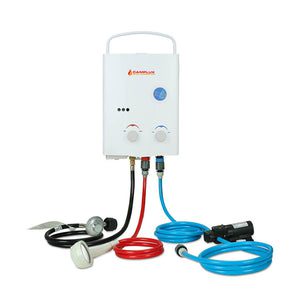
- The 5L tankless portable water heater is great for camping, to the beach or family vacations mountain cabins horse stables etc.
- oxygen depletion sensor protection, it can be also installed indoors where is well ventilated.
- The propane portable water heater powered by 2 pcs size “D” cell batteries
- low water pressure operating range of 3.0~110.0 PSI .
- also works on modified water systems with a 12 volt water pump.
- 30,000btu/hour.
- Camplux tankless water heater propane line was not recommend for elevation above 2000 ft.
- 72% of almost 400 reviews gave 5stars
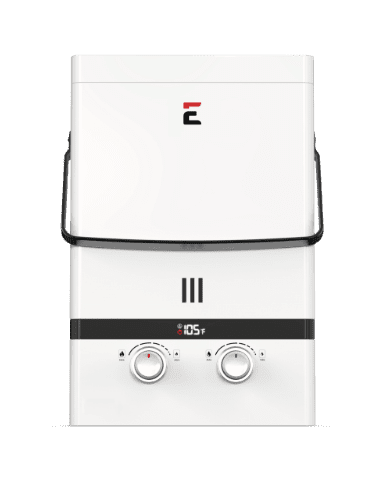
- Enjoy a hot outdoor shower wherever you are
- Heats water instantly for camping, hunting, RVs, or anywhere you need endless hot water
- Ignition is powered by 2 D-cell batteries for use where there’s no electrictyRuns on a standard 20-lb. propane tankAdjustable temperature range of 80° to 120°F
- over 700 reviews 64% gave 5 stars
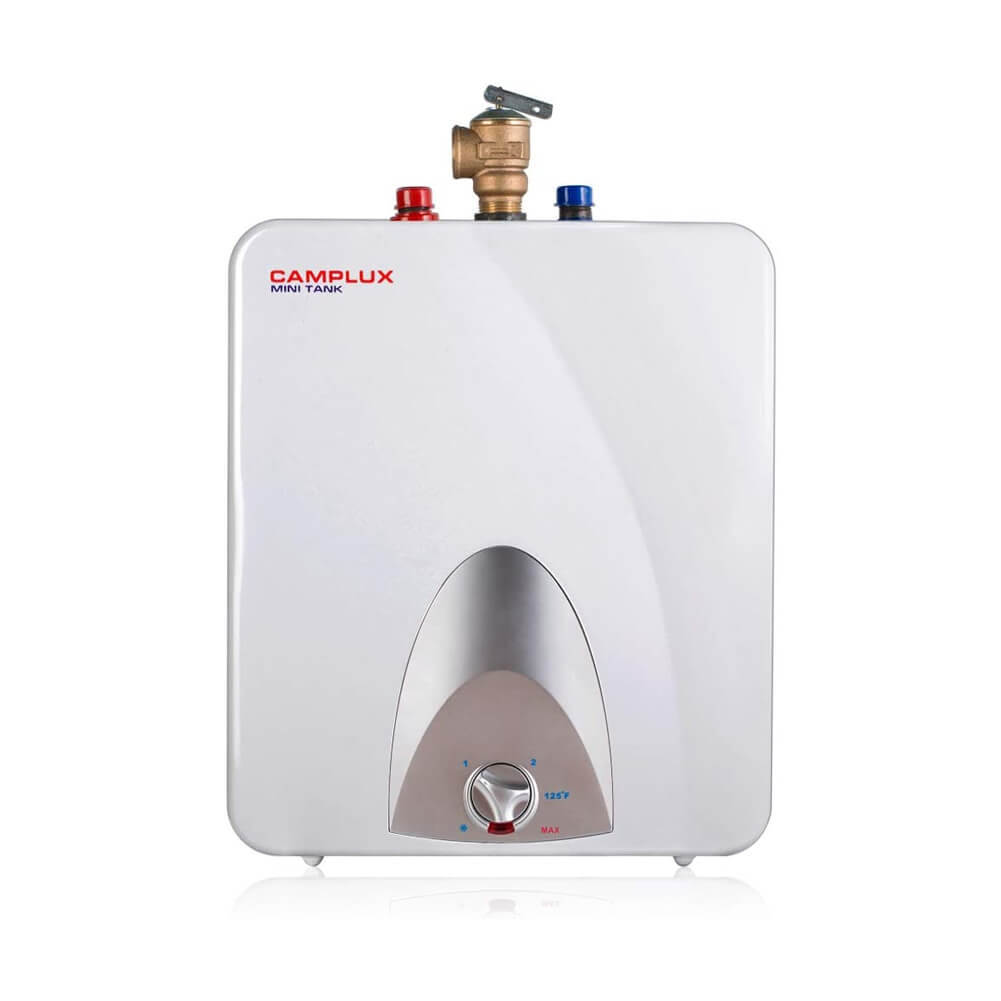
- Saving Energy & Money- Built in insulation foam, reduces heat loss. 6-gallon point-of-use mini-tank fits under your sink to provide hot water right where you need it.
- 43.3‘’ cord plugs into 120 volt outlet for independent installation or in-line with a large hot water source.(Max. water pressure is 150 PSI, CSA listed Temperature & Pressure relief valve included)
- Can be shelf, wall or floor mounted (bracket included); Simply tap into the cold water line and install the water heater directly at the sink to provide hot water. Product dimension:15.75″ W x 21″ H x 15.5″ D.
- over 70% of 1200 reviews were 5star
electric
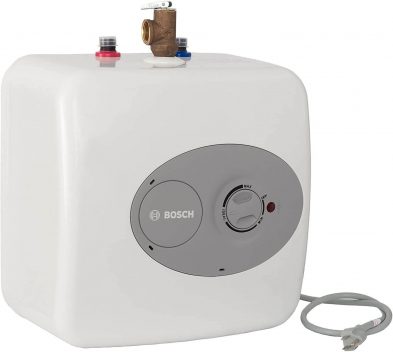
- 4 gallon point-of-use mini-tank fits under your sink to provide hot water right where you need it. Thermal efficiency is 98%. Dimensions : 13.75 W x 13.75 H x 13.5 D Inches
- easy to maintain and has premium glass-lined material for a long service life. (Amps 12A, Volts (VAC) 120)
- 36-37″ cord plugs into a 120 volt
- supplies up to 2 sinks at a time
- Can be shelf, wall or floor mounted (bracket included); simply tap into the cold water line and install the water heater directly at the sink to provide hot water
- almost 8000 reviews and 74% were 5star
Tips for Using On-demand Hot Water Systems in Your RV
- Practice water conservation: Tankless water heater systems can use a lot of water, so it’s important to be mindful of your usage. Take shorter showers and turn off the flow when you’re not actively using it.
- Use low-flow fixtures: Consider installing low-flow showerheads and faucets to reduce the amount of H2o you use.
- Be mindful of cold weather: Tankless water heater systems can be affected by cold weather. If you’re camping in cold temperatures, make sure to keep your water lines and the on-demand system insulated. You may also want to consider using a space heater to keep the system from freezing.
- Check your propane levels: Tankless water heater systems are typically propane-powered, so it’s important to keep an eye on your propane levels. Make sure you have enough propane to last for the duration of your trip.
- Perform regular maintenance: On-demand systems require regular maintenance to operate properly. Make sure to clean the system regularly and check for any leaks or other issues.
- Follow safety precautions: tankelss hot water systems can get very hot, so it’s important to take safety precautions when using them. Make sure to keep children and pets away from the system and never leave it unattended.
- Use a pressure regulator: Tankless heaters can be sensitive to pressure, so it’s important to use a pressure regulator to ensure that the pressure is at a safe level.
- Consider a water softener: If you’re camping in an area with hard water, consider using a water softener to prevent mineral buildup in your tankless on demand system.
Say Goodbye to Tank Heaters and Hello to Endless Hot Water
Upgrading your RV hot water system to an on-demand tankless system is a game-changer. Not only does it save you valuable space in your RV, but it also provides an endless supply of hot water and energy efficiency, all while being environmentally friendly. With the right sizing and installation, an on-demand hot water system can greatly enhance your RV living experience, making it more comfortable and convenient. If you are like me and you have been waffling about the expense of installing one of these on demand bottomless tankless water heaters I hope this article has helped answer some questions. I’m still undecided due to the really high upfront cost.
Let us know in the comments if you have done this upgrade and what your thoughts are?

